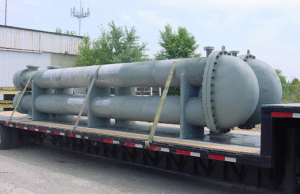
home alcohol detox
Home alcohol detox is something many people consider when they want to stop drinking and begin recovery. It may feel easier and more private than checking into a rehab centre. But detoxing at home comes with both benefits and risks. It’s not a decision to take lightly. Understanding how withdrawal works, recognising the signs to watch for, and knowing when to seek help can make a significant difference. The goal is not just to quit drinking for a few days. It is about building a better life. This article breaks down what you need to know before trying home alcohol detox.
What Is Home Alcohol Detox?
Home alcohol detox means you stop or reduce your alcohol use while staying at home. It may involve gradually reducing consumption over time or stopping completely. Some people choose this to avoid the cost or stress of staying in a clinic. But home detox works only if you have mild withdrawal symptoms. You also need someone to check on you regularly.
Common Withdrawal Symptoms to Expect
It is essential to know how your body might react when you stop drinking. During home alcohol detox, your body starts adjusting to life without alcohol. This can lead to symptoms like shaking, anxiety, sweating, and trouble sleeping. Some people may also get headaches or feel very tired. In more severe cases, seizures or severe confusion may occur. If that happens, you need medical help right away. Never ignore symptoms that feel too strong to handle.
When Is Home Detox a Bad Idea?
Home alcohol detox is not safe for everyone. If you have been drinking heavily for a long time or have had seizures in the past, do not try it alone. The same goes if you have liver problems, heart issues, or mental health concerns. It is better to speak to a doctor and choose a safer option like supervised detox.
What Makes Home Detox Safer?
Always share your plan with someone you trust. Ask them to check on you often. Drink lots of water and eat light meals. Take vitamins if advised by a doctor, especially B1. You can slowly reduce alcohol intake rather than stop suddenly. Avoid triggers and keep a calm routine. And most importantly, have a hospital or rehab number ready in case symptoms worsen.
Recovery Does Not End After Detox
Detox is only the first step. Long-term recovery takes more effort. After your home alcohol detox, think about what comes next. Support groups, therapy, and healthy habits can help you stay away from alcohol. Medications may also help reduce cravings. Talk to a professional for long-term support.
Conclusion
Home alcohol detox might work for people with mild symptoms, firm support, and a safe plan. But it is not right for everyone. Know your limits. Do not ignore signs that your body needs help. The most essential part of detox is not the few days without alcohol. It is the life you build after it. With the proper steps, lasting recovery is possible. You don’t need to do it all at once, and you don’t have to do it alone. If you are ready for change, take that first step carefully and ensure it aligns with a long-term recovery plan.




